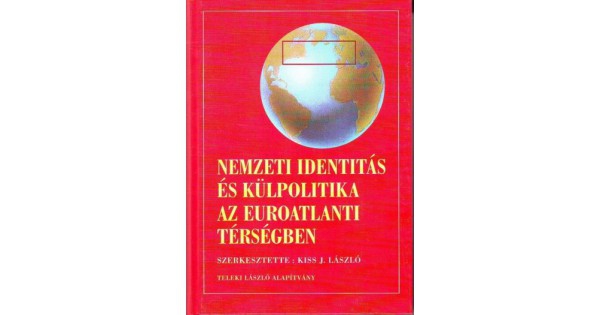Ouvrage collectif
LES CARACTERISTIQUES DE L’IDENTITE NATIONALE FRANCAISE ET LEUR PROJECTION DANS LE DOMAINE DE LA POLITIQUE ETRANGERE
Les éléments constitutifs de l’identité nationale française
Le concept de nation
Facteurs géographiques et démographiques
Racines historiques et économiques
Aspects culturels et identitaires
L’expression des éléments d’identité dans la dimension de la politique étrangère
Indépendance
Activisme et présence globale
Grandeur et gloire
De Gaulle : l’optimisation de la réciprocité entre identité nationale et politique étrangère
LA POLITIQUE ETRANGERE DE LA FRANCE ENTRE SENTIMENT DE DECLIN ET PUISSANCE RESIDUELLE
Le sentiment du déclin : le « mal du siècle » à la française
Les attributs de puissance de plus en plus relativisés
Siège permanent au Conseil de sécurité de l’ONU
Force de frappe
Réseau de relations dans le Tiers monde
Multipolarité et diversité : double postulat des actions extérieures
Diplomatie « tous azimuts »
Politique de sécurité et de défense d’une pseudo-grande puissance
Défense totale
Autonomie et présence globale
Perspectives européennes
GLOBALISATION FURTIVE: LES CONTRADICTIONS DE LA POLITIQUE FRANCAISE EN MATIERE DE GLOBALISATION
Le syndrome d’Astérix
La France comme l’un des principaux acteurs de la globalisation
Les racines identitaires de la dualité française par rapport à la globalisation
Le véhicule du message universel : la politique culturelle
Expression institutionnelle
Revendication de diversité comme message universel : la francophonie
CONSTRUCTION EUROPEENNE : L’INSTRUMENT ET LE BUT DE LA POLITIQUE ETRANGERE DE LA FRANCE
Caractéristiques du modèle d’intégration idéal du point de vue français
Renforcement du caractère intergouvernemental au niveau de l’Union à 15
L’élargissement comme catalyseur de la nécessaire différenciation
L’Europe « hexagonalisée » : le lien entre identité nationale et politique européenne
Multiplicateur de puissance
Transfert d’identité partiel
Conclusion

(In: Nemzeti identitás és külpolitika az euroatlanti térségben, ed. L. J. Kiss, Budapest, 2005)
Tags:
france




















